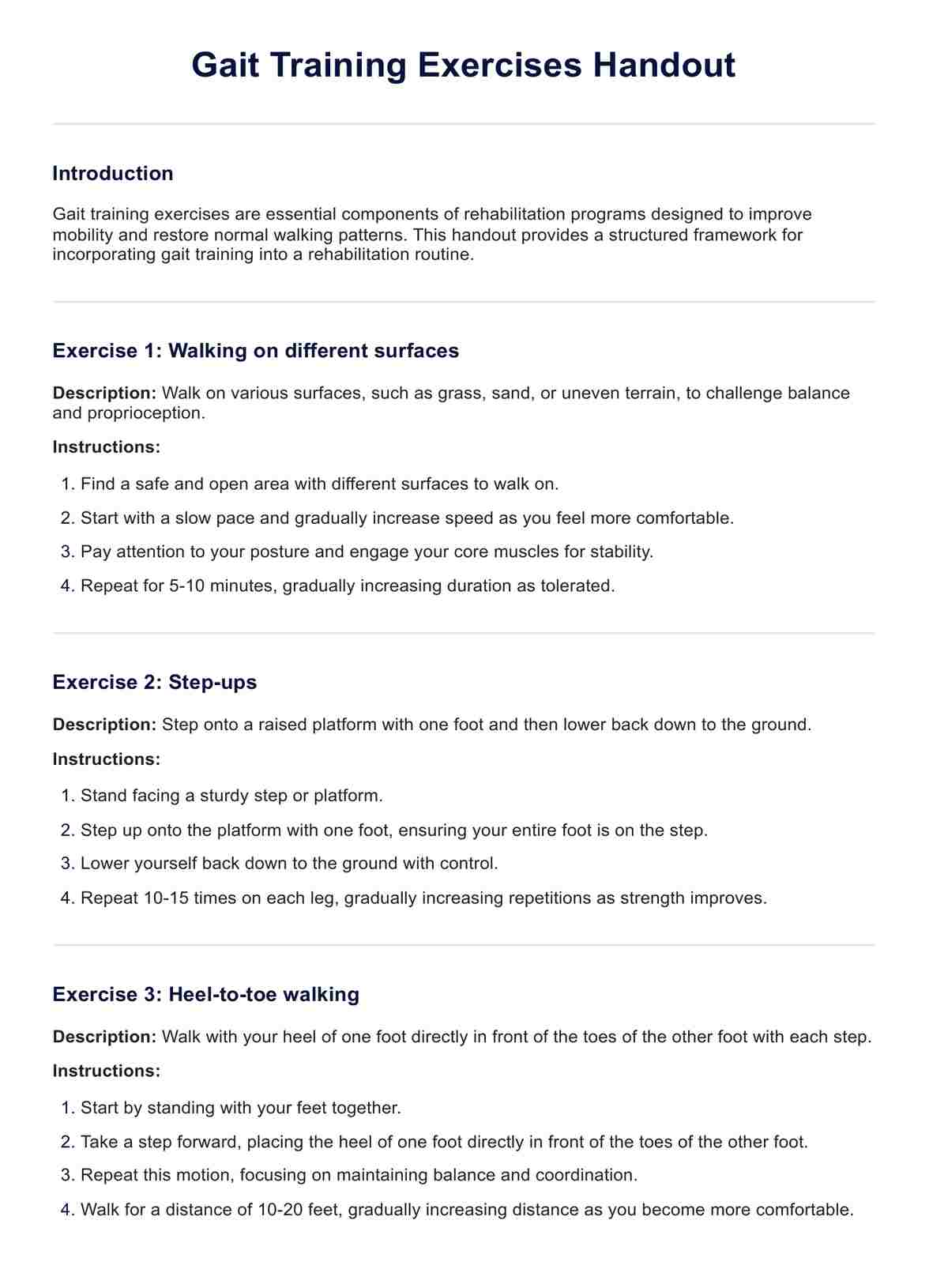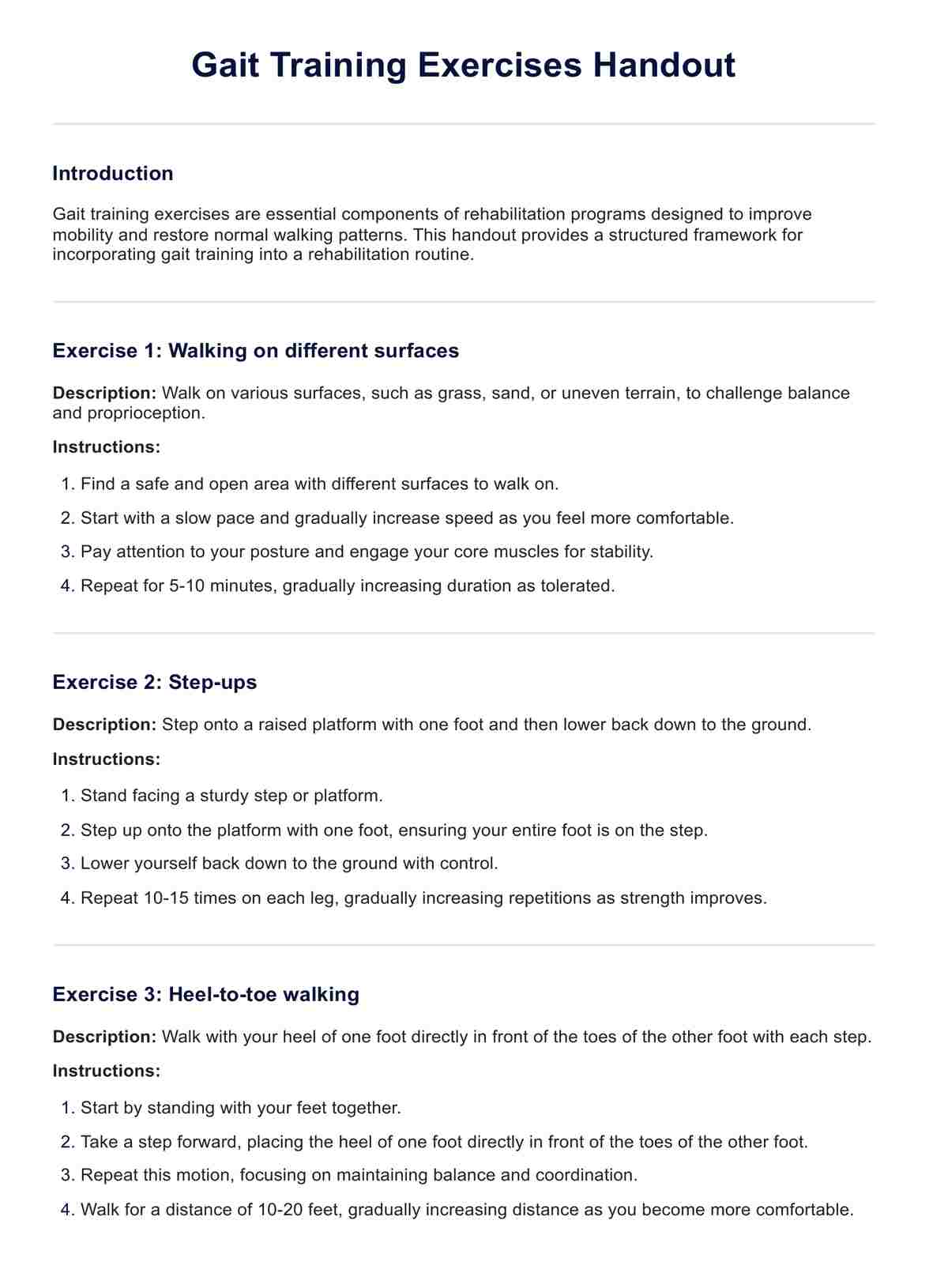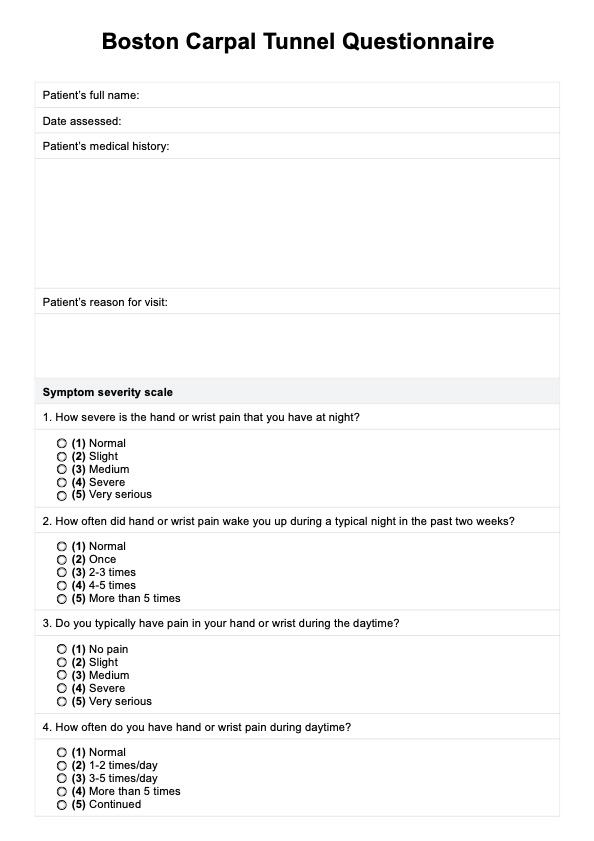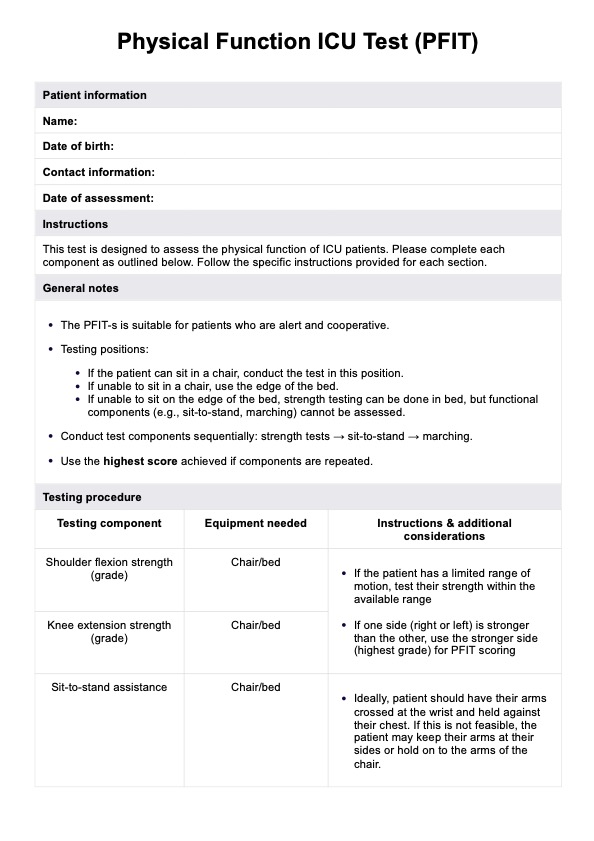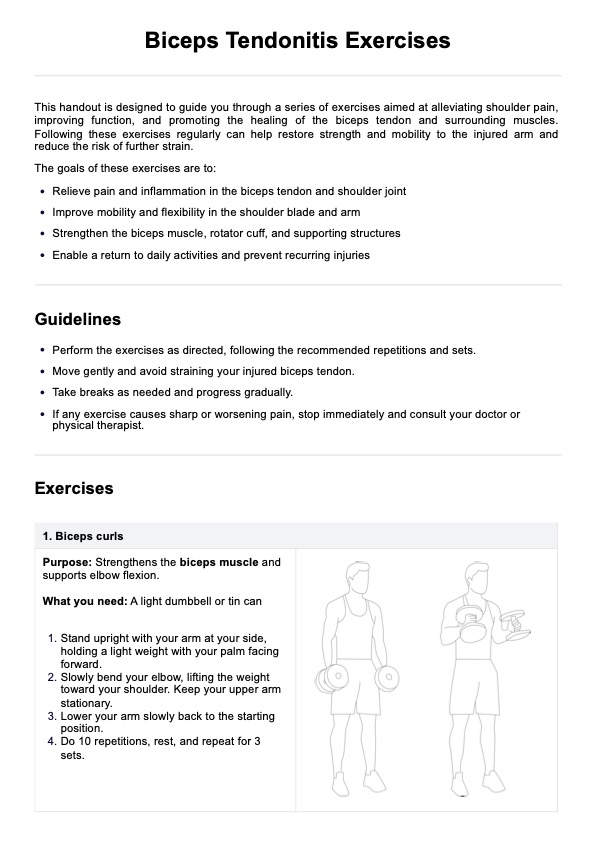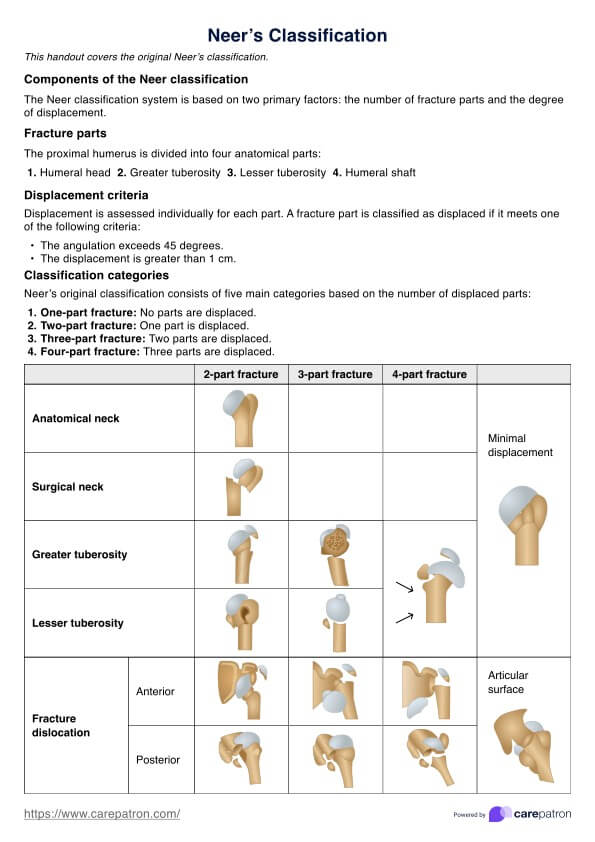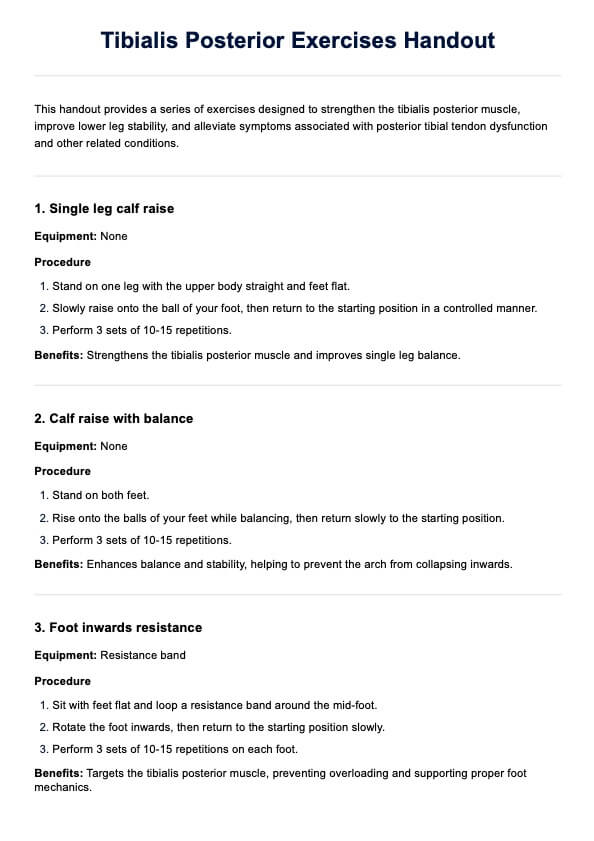Gait Training Exercises Handout
Learn about effective gait training exercises with Carepatron's free PDF download handout and example. Improve your walking ability with these exercises.


What is gait training?
Gait training is a fundamental aspect of rehabilitation to improve an individual's ability to walk effectively and safely. Under a physical therapist's guidance, gait training exercises are tailored to address specific needs, such as increasing walking speed, enhancing balance, and restoring normal gait patterns. This structured program typically involves a combination of exercises and techniques designed to target various aspects of walking mechanics.
In a gait training exercise program, individuals may engage in a range of activities, including walking on different surfaces, practicing side-stepping gait exercises, and navigating obstacles to simulate real-life challenges. These exercises help improve muscle strength, coordination, and flexibility, ultimately enhancing overall mobility. Additionally, techniques like body weight support and functional electrical stimulation may be incorporated to support stroke patients or those with mobility impairments.
Gait training strategies often focus on correcting abnormalities like uneven weight distribution or foot placement. Proper alignment and movement patterns can help individuals regain confidence in their walking ability and reduce the risk of falls. Whether through balance training or specific drills targeting left foot placement, gait training aims to optimize functional mobility and independence.
Gait Training Exercises Handout Template
Gait Training Exercises Handout Example
How to use our Gait Training Exercises Handout?
Our Gait Training Exercises Handout is a valuable resource for medical professionals, providing a structured framework for incorporating gait training into their patients' rehabilitation programs. Follow these steps to utilize the handout effectively:
Step 1: Assessment and goal setting
Begin by assessing the patient's current gait and mobility status. Identify specific areas of weakness or impairment that need to be addressed through gait training exercises. Set clear and achievable goals based on the patient's individual needs and abilities.
Step 2: Download the handout
Download our free Gait Training Exercise Handout for your patients. You can get a copy using the link on this page or via the Careptron app.
Step 2: Review the exercises
Review the gait training exercises provided in the handout. Consider factors such as balance training, motion exercises, and the ability to perform obstacle gait training when choosing exercises.
Step 3: Integration into treatment plan
Incorporate the gait training exercises into the patient's overall treatment plan, integrating them with other physical therapy interventions as appropriate. Emphasize the importance of consistency and adherence to the prescribed exercise routine for optimal results.
Benefits of practicing and performing these exercises
Engaging in Gait training exercises offers many benefits for individuals undergoing rehabilitation. Here are five key advantages:
Improved mobility
Gait training exercises help enhance muscle strength, coordination, and flexibility, improving mobility and the ability to perform daily activities with greater ease and confidence.
Enhanced balance
By incorporating balance-focused exercises, gait training helps individuals develop better balance control, reducing the risk of falls and enhancing stability during walking and other movements.
Restoration of normal gait
Consistent practice of gait training exercises promotes the restoration of a normal forward gait pattern, enabling individuals to walk more efficiently and naturally.
Increased independence
As individuals progress through their gait training exercise routine, they gain greater independence in mobility, reducing reliance on assistive devices and enhancing overall quality of life.
Prevention of secondary complications
Regular participation in gait training exercises can help prevent secondary complications associated with immobility, such as muscle weakness, joint stiffness, and cardiovascular deconditioning, promoting long-term health and well-being.
Commonly asked questions
Improving walking gait involves exercises to strengthen muscles, enhance balance, and correct any biomechanical issues. Working with a physical therapist can help create a personalized gait training program tailored to your specific needs and goals.
Gait training in physical therapy refers to a structured program to improve walking ability and mechanics. It typically involves exercises, techniques, and strategies to address gait abnormalities and enhance functional mobility.
Exercises such as stretching tight muscles, strengthening weak muscles, and practicing proper posture can help improve crouched gait. Physical therapists may also incorporate Gait Training Exercises targeting specific muscle groups involved in walking.


